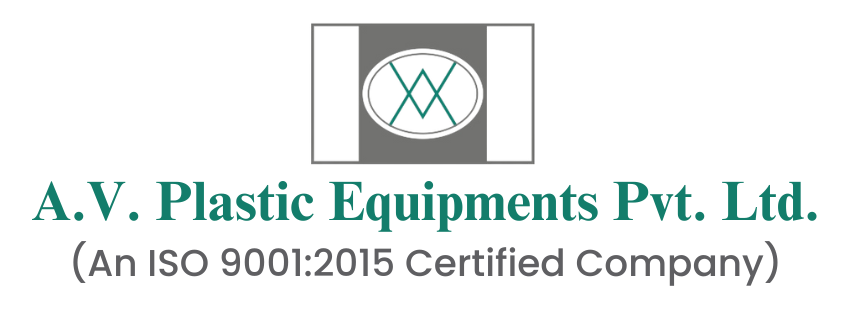FAQs
- Home
- FAQs
Frequently Asked Questions
FRP equipment refers to industrial components made from Fiberglass Reinforced Plastic, a composite material known for its high strength-to-weight ratio, corrosion resistance, and durability. Common FRP equipment includes storage tanks, scrubbers, reaction vessels, and filtration systems.
FRP equipment offers several advantages:
- Corrosion Resistance: Ideal for handling corrosive substances in chemical processing.
- Lightweight: Easier to transport and install compared to traditional materials.
- Durability: Long service life with minimal maintenance requirements.
- Customization: Tailored solutions to meet specific industrial needs.
FRP equipment is typically manufactured using processes like filament winding, hand lay-up, and resin transfer molding. These methods ensure uniform material distribution and structural integrity.
FRP equipment is widely used in industries such as:
- Chemical Processing: For handling aggressive chemicals.
- Water and Wastewater Treatment: In tanks and filtration systems.
- Oil and Gas: For storage and transportation of fluids.
- Food and Beverage: Ensuring hygiene and safety standards.
- Pharmaceuticals: Maintaining purity and compliance with regulations.
Yes, FRP equipment is UV-resistant and can withstand outdoor environmental conditions, including rain, sunlight, and temperature variations.
Minimal maintenance is required. Regular cleaning and inspection for cracks or leaks ensure long-term performance of FRP equipment.
Nutsche Filter/Dryers Can Effectively Perform the Separation of Solid Matter from a Liquid Under Pressure or Vacuum, in a Closed System. The ability to Isolate the Product Not Only Reduces Product Handling but Also Minimizes Operator Exposure and Serves as Environmental Protection Against Solvent Vaporization. While Spirall Nutsch can’t sustain high Vaccum and Pressure Conditions, Composite ones are a perfect alternative for the same.
With proper care, FRP equipment can last 15–25 years depending on the application and chemical exposure.
Absolutely. FRP equipment can be engineered using suitable resin systems for resistance to acids, alkalis, and other aggressive chemicals.
FRP equipment refers to industrial components made from Fiberglass Reinforced Plastic, known for its durability, corrosion resistance, and lightweight properties.
FRP equipment offers chemical resistance, durability, low maintenance, lightweight construction, and customizable designs for various industries.
Yes, FRP equipment is UV-resistant and can withstand outdoor weather conditions, including sunlight, rain, and temperature variations.
Industries such as chemical processing, pharmaceuticals, food & beverage, water treatment, and oil & gas rely on FRP equipment.
Yes, certain FRP equipment is certified for potable water storage and meets hygiene and safety standards.
With proper maintenance, FRP equipment typically lasts 15–25 years depending on the chemicals and environmental conditions.
Minimal maintenance is required. Regular cleaning and inspections for cracks or leaks ensure the longevity of FRP equipment.
Yes, FRP equipment can be engineered with suitable resin systems to resist acids, alkalis, and other aggressive chemicals.
Our FRP equipment comes in vertical, horizontal, conical, and Spirall-wound configurations, tailored to client specifications.
Yes, FRP equipment can be integrated with piping, pumps, scrubbers, and storage systems, ensuring seamless operation.
Spirall products refer to industrial components made using the Spirall winding technique, commonly used in the manufacturing of tanks, pipes, and other cylindrical structures.
Spirall products offer several benefits:
- Strength: Enhanced structural integrity due to the continuous winding process.
- Corrosion Resistance: Suitable for aggressive environments.
- Cost-Effectiveness: Efficient use of materials and reduced waste.
Customization: Ability to produce components of various sizes and specifications.
The manufacturing process involves winding layers of polymer materials around a mandrel in a Spirall pattern. This technique allows for the production of strong and lightweight components.
Spirall products are utilized in industries such as:
- Chemical Processing: For storage and transport of chemicals.
- Water Treatment: In filtration and distribution systems.
- Oil and Gas: For pipelines and storage tanks.
- Agriculture: In irrigation systems and chemical application equipment.
Spirall products are typically made from HDPE & PP for chemical resistance and durability.
Consider the chemical resistance, density, temperature range, pressure rating, and capacity requirements when selecting spirall products.
Yes, Spirall products can be repaired by extrusion welding method. Major structural damage may require component replacement.
Yes, Spirall products are designed in compliance with DVS2205 standards and other applicable industrial safety standards.
Spirall products are industrial components manufactured using a Spirall winding technique, providing high strength, corrosion resistance, and durability.
Spirall products are made by winding layers of polymer materials around a mandrel, creating strong, lightweight, and corrosion-resistant structures.
Chemical processing, water treatment, oil & gas, pharmaceutical, and agricultural industries commonly use Spirall products
Yes,Spirall products reduce material costs, installation time, and maintenance, making them highly cost-effective.
Absolutely. can be designed in various diameters, lengths, wall thicknesses, and resin types to suit specific applications.
Spirall products are highly resistant to acids, alkalis, and other corrosive chemicals, ensuring longevity in harsh environments.
Yes, Spirall products are lightweight compared to metal alternatives, allowing easier transportation and installation.
Minimal maintenance is needed. Periodic cleaning and inspection for surface wear ensures continued optimal performance of Spirall products.
